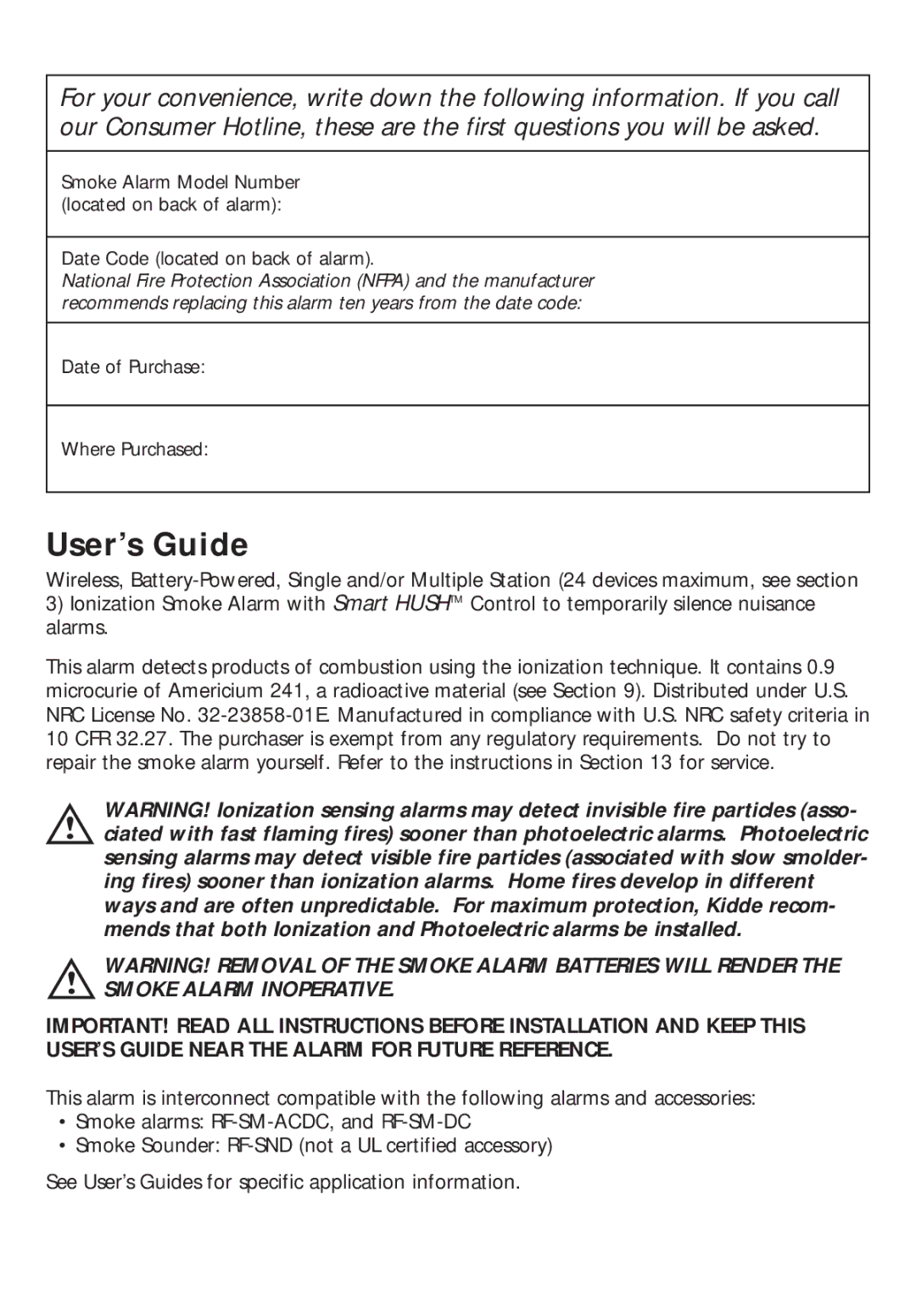
For your convenience, write down the following information. If you call our Consumer Hotline, these are the first questions you will be asked.
Smoke Alarm Model Number (located on back of alarm):
Date Code (located on back of alarm).
National Fire Protection Association (NFPA) and the manufacturer recommends replacing this alarm ten years from the date code:
Date of Purchase:
Where Purchased:
User’s Guide
Wireless,
3)Ionization Smoke Alarm with Smart HUSHTM Control to temporarily silence nuisance alarms.
This alarm detects products of combustion using the ionization technique. It contains 0.9 microcurie of Americium 241, a radioactive material (see Section 9). Distributed under U.S. NRC License No.
WARNING! Ionization sensing alarms may detect invisible fire particles (asso- ciated with fast flaming fires) sooner than photoelectric alarms. Photoelectric sensing alarms may detect visible fire particles (associated with slow smolder- ing fires) sooner than ionization alarms. Home fires develop in different ways and are often unpredictable. For maximum protection, Kidde recom- mends that both Ionization and Photoelectric alarms be installed.
WARNING! REMOVAL OF THE SMOKE ALARM BATTERIES WILL RENDER THE SMOKE ALARM INOPERATIVE.
IMPORTANT! READ ALL INSTRUCTIONS BEFORE INSTALLATION AND KEEP THIS USER’S GUIDE NEAR THE ALARM FOR FUTURE REFERENCE.
This alarm is interconnect compatible with the following alarms and accessories:
•Smoke alarms:
•Smoke Sounder:
See User’s Guides for specific application information.
